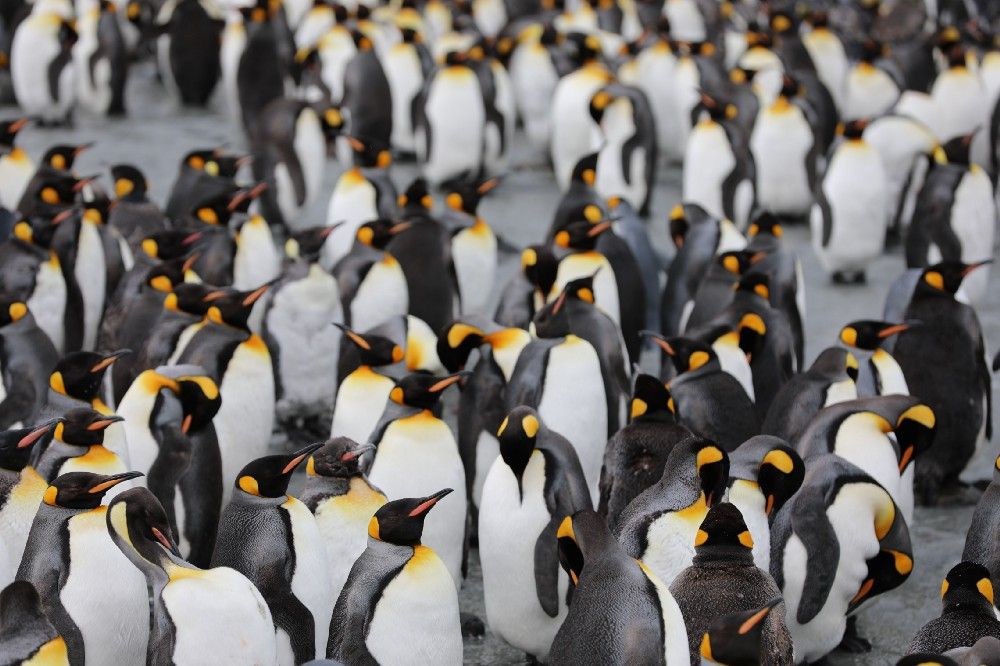
半導體外商的小小螺絲釘,遊走於廢青與社畜之間。熱愛閱讀,喜歡透過書本探索外在、內化自我。希望藉由書寫打開與世界交流的一扇窗。 個人部落格:https://maxjamesread.com/
"Be a Warm Person": Don't forget, we are not alone!

Have you ever thought about what we use to describe psychological feelings such as "warm" or "chilling"? When it's cold, do you feel warm just by holding a cup of hot tea? Let this book "Being Warm" take you to explore the complex and fascinating relationship between temperature and animals from the rich perspectives of psychology, biology and philosophy!
This experience will first take you to understand the importance of temperature to living things, and see how animals do everything possible to maintain their body temperature; then it will discuss how temperature affects our "cognition", causing you to be cold and cold; Introducing my favorite part of the book: Epistemology, and talking about the quandaries of psychological research and why we should be skeptical of any experimental results.
【Temperature is about life and death】
From the perspective of survival, "regulation of temperature" is the most important thing for animals besides breathing oxygen. Therefore, all animals have developed a good ability to control temperature.
Everyone should have learned the classification of animals such as warm-blooded and cold-blooded. However, this classification is not very intuitive. For example, a lizard that is basking in the sun may have a body temperature of 38 degrees, which is not "cold" at all. Now scientists prefer to use "outer temperature" or "inner temperature" to distinguish. External temperature means that the animal obtains its body temperature from the environment (such as lizards); while internal temperature means that the animal can generate heat on its own (such as humans).
These two temperature control methods have their own advantages and disadvantages. Exothermal animals adapt to the environment because of their body temperature, and their range of activities will be more limited; while endothermic animals are more mobile, but they have to spend more energy to find food and obtain energy to burn and maintain their body temperature.
Regulating body temperature is a very "energy-consuming" thing, so even if endothermic animals can "rely on themselves" to control their temperature, they will often adjust their body temperature by changing their behavior just like exothermic animals. For example, when the weather is hot, cats will lick their bodies to cool down, koalas will hug the cold tree trunks, and when the weather is cold, many mammals will bristle to keep warm.
And because maintaining body temperature is laborious, animals are always looking for more labor-saving ways. "Social thermoregulation" is a common approach. Like emperor penguins, hundreds of them huddle together to keep warm. In this way, you can save yourself the effort of burning fat to generate heat. In the past, when heating technology was underdeveloped, it used to be the norm for people to sleep together.
Temperature is even so important that evolution is affected by it. For example, in the fossils of primitive humans, it was found that the human pelvis in warm regions was narrower than that in cold regions. This is because the narrow pelvis is more suitable for walking upright on two feet, and the heat dissipation efficiency will be better in hot climates.
Not only genes, but also cultural development is driven by temperature. Like humans, to keep warm, they began to make clothes, build houses, and also developed various heat-generating technologies (such as heating) and the ability to predict climate change.

【Cognition of the influence of temperature】
In the last paragraph we saw the relationship between temperature and animals. However, the power of temperature is not only that, it can even affect our "psychological cognition".
When it comes to cognitive science, we have to talk about the originator of thinking in this field: Descartes. He believed that the mind in the body was like "the navigator of the ship" and could steer the body. This is the famous " dualism ". This view holds that the interaction between mind and body is one-way. The mind can control the body, but the body cannot in turn influence the mind.
But the American psychologist William James wrote in his classic paper "What Are Emotions? , questioning such dualism. Generally we think that "people smile when they are happy and cry when they are sad". But James thinks the reverse is also true. In other words, "smiles also make people feel happy", and the mind and body will affect each other in both directions.
OK, so what does this have to do with "temperature"? Remember the example at the beginning that hot tea warms your heart? Yes, the relationship between temperature and psychology also has such a bidirectionality, and psychological temperature and physiological temperature may affect each other.
The University of Toronto used an online game called Cyberball to test whether mental state affects temperature perception. In the game, subjects will throw a virtual ball with two other people on the line. But these two people don't actually exist. The behavior of throwing the ball is actually completely in the hands of the researchers: if you want to make you feel isolated, you will not give you the ball on purpose; on the contrary, if you want to make you feel a sense of belonging, you will continue to The ball is passed to you.
After the game, the psychologists asked the subjects to rate what food they wanted to eat. The funny thing is, those who are deliberately isolated will especially want to eat "hot" food. What's more, when the researchers asked them to assess the current room temperature, the poor worms felt three degrees cooler than others. In other words, when your heart is cold, you really feel "cold".
Conversely, temperature also affects psychological cognition. A German study had subjects look at mugshots of eight suspects and guess what crimes they had committed. What the subjects didn't know was that there were actually temperature differences in the lab. As a result, the subjects in the warm room mostly guessed misdemeanors such as tax evasion; but the subjects in the cold room mostly guessed felonies such as kidnapping or murder. It can be seen that the cold weather may make your heart "cold".
This may be related to the importance of temperature regulation. Evidence shows that when Neantas approached infants to help them regulate their body temperature, infant survival increased. It can be seen from this that it may be our nature to want to find warm people to accompany and avoid being left out. Psychological temperature and physiological temperature are naturally connected in this way.
For example, research has found that when consumers interact with trusted brands, they estimate that the ambient temperature will be higher. That is to say, psychological trust will warm up the body.
Do you feel like you've found some kind of Holy Grail when you see this? For example, can a salesperson use temperature to entice consumers to buy? Or on the positive side, can temperature be used to improve the condition of patients with depression?
Unfortunately, things are not that simple...

[Psychology's Remake Crisis]
Temperature and cognition are so closely linked that one can't help but wonder if these findings will be actively used. Too bad it's not that simple. The author mentioned that psychological research is actually facing a serious "reproduction crisis", and many research results cannot be replicated.
A study published in the well-known journal Nature tried to replicate 21 sociology and behavioral science papers in Nature and Science, but 8 of them could not be replicated.
Do psychologists love to fake it? of course not. The problem is that psychology is more difficult to study than fields such as physics. Let's explore them one by one:
[Definition problem]
When making causal judgments, it is important to be able to "define" cause and effect. What does that mean? If we want to explore the relationship between temperature and depression (like whether symptoms become "severe" when the temperature is "low"), there must be a measure of "temperature" and "depression condition."
The temperature is fine to measure, but the depression is not so easy to deal with. The book notes that the way depression is judged varies widely. There are seven common depression assessment scales alone, adding up to 52 symptoms. Therefore, experimental results using one scale may not be replicated on other scales.
[Sample Question]
Another issue is the reliability of "sample" collection. The field of physical chemistry is relatively well-controlled. For example, when I was studying in a graduate school, I basically expected that the differences between test pieces of the same specification would be negligible. But the research sample of psychology is "people", and the "variation" of people is quite large.
As mentioned in the book, most of the research objects targeted by social sciences are college students (because they are easy to find). But they are usually the so-called "WEIRD" group:
- W: Western (Western)
- E: Educated
- I: Industrialized
- R: Rich (Rich)
- D: Democracy
Experimental results produced with these samples are prone to bias. The book mentions that a classic psychological measure of personality traits like the " Big Five " is less applicable to low- and middle-income countries or the elderly. Because this scale is designed for the "WEIRD" group.
Simply put, the results of psychological experiments are likely to vary greatly due to different testers.
(too few samples)
Many experiments have been increased in scale and participants have found that the results cannot be reproduced. The reason is that the original number of test samples is too small.
The book cites Seasonal Affective Disorder as an example. Many people feel better when the weather is "good" (sunny), while "bad" weather (cold) can make people feel depressed. This is a simple common sense view. However, a large Dutch study of nearly 15,000 people in 2010 found that weather conditions did not correlate much with sadness.
In other words, such a seemingly reasonable causal relationship is actually just an error judgment generated by a few cases.
[overfitting]
In addition, the problem of "overfitting" often occurs in research, which affects the interpretation of data due to pre-assumption bias. As the saying goes, with a mallet in hand, everything looks like a nail.
As mentioned in the book " Posture Determines Who You Are ", you can use "power postures" to increase confidence. But the study was later found to be impossible to replicate . In this report , the co-authors of the experiment admitted that their study was overfitting. Too much hope to see the expected results, leading to biased data judgments.
(correlation does not equal causation)
Finally, even if the variables can be accurately measured and defined, and the sample collection is diverse and sufficient, it is still difficult for us to make a 100% judgment on causality.
The author emphasizes many times in the book that even if the data appear to be related, it is still not easy to infer cause and effect. Here, for example, a study found that “the higher the ice cream sales, the more drowning deaths.” But the two are obviously unrelated, it's just that the statistics are just right.

Seeing this, you should understand why I said "it's not that simple". What I admire is that the author does not shy away from talking about these issues. I love how carefully the conditions are described in the book's description of the experiments. And even if the results seem clear, the author will ramble on reminding readers not to jump to conclusions or make too many ramifications. Even said:
Psychology books are not supposed to give you specific advice or clear tips on what to do in your life at all.
In all fairness, physiological temperature may indeed interact with psychological temperature. However, there are too many factors that affect psychology in real life, and it is not like the precise control of variables in the laboratory. If you get dumped in summer, you don't feel better than in winter, right?
Of course, this is not to say that the interesting experiments above are useless, but to understand that these experiments have their limitations and may not be easily applied to life.

【Summarize】
in conclusion. First, we discuss the importance of temperature for animal survival, which affects even genes and culture; in addition, temperature also affects cognition, and psychological temperature and physical temperature are related to each other; finally, it is necessary to understand that any research has limitations, it is necessary to Be cautious about the results of various experiments.
The content of this book is extremely rich. I thought I could easily read it and read some popular science books about interesting psychological experiments, but I didn't expect it to be so "expected".
The author's interpretation of the effect of temperature from the perspective of biological evolution and brain science can be said to be quite exciting. And the philosophical discussion in it surprised me even more. I didn't expect to see the Turing test and the Chinese room in this book. But what I like most about the book is the discussion of "epistemology". Remind me again not to forget the nature of science. As the author says:
It cannot be taken for granted that the conclusions we draw from phenomena are correct.
To be honest, I've suffered. The issue of "Posture determines who you are" mentioned above was actually discovered by a kind-hearted netizen when my Po Wen arrived at the reading club. By the way, my specialty is slave and liver semiconductor process, and most of the books I have introduced are in areas that I am not familiar with. So if you find any problems with the content, please leave a message and let me know!
If you are interested in the topic of epistemology, I recommend three related books here: " World View ", " Antifragile " and "History of Western Philosophy: From Socrates to Saudi Arabia and Beyond". I believe that after reading this book, you will have a better understanding of the content.
[Postscript: warmth is still very important]
Having said that, since the impact of physiological temperature on psychological cognition will be affected by other complex variables in the real world, it is not so intuitive. Are those "warm" behaviors still necessary? Shouldn't we offer a hot cup of tea when someone else is lost, or a warm hug to a grieving friend?
Of course the answer is yes!
In fact, thermoregulation already tells us how important socialization is for animals (think penguins huddled together). Of course, human beings have undergone complex evolution, and our social interaction has already exceeded the simple temperature needs. But as the authors say, thermoregulation research allows us to see the nature of living things: we are living things that need each other .
Therefore, when we send "warmth", we don't really need to care whether physical temperature can be converted into psychological temperature, because this is the natural connection between people.
Perhaps the most important thing this book has taught me is this: don't forget, we're not all alone!
Articles you may also be interested in:

↓↓You are also welcome to follow the Facebook and mourning of "Mrs's Reading Space"↓↓
James' reading space FB
James' reading space IG
Like my work?
Don't forget to support or like, so I know you are with me..
Comment…